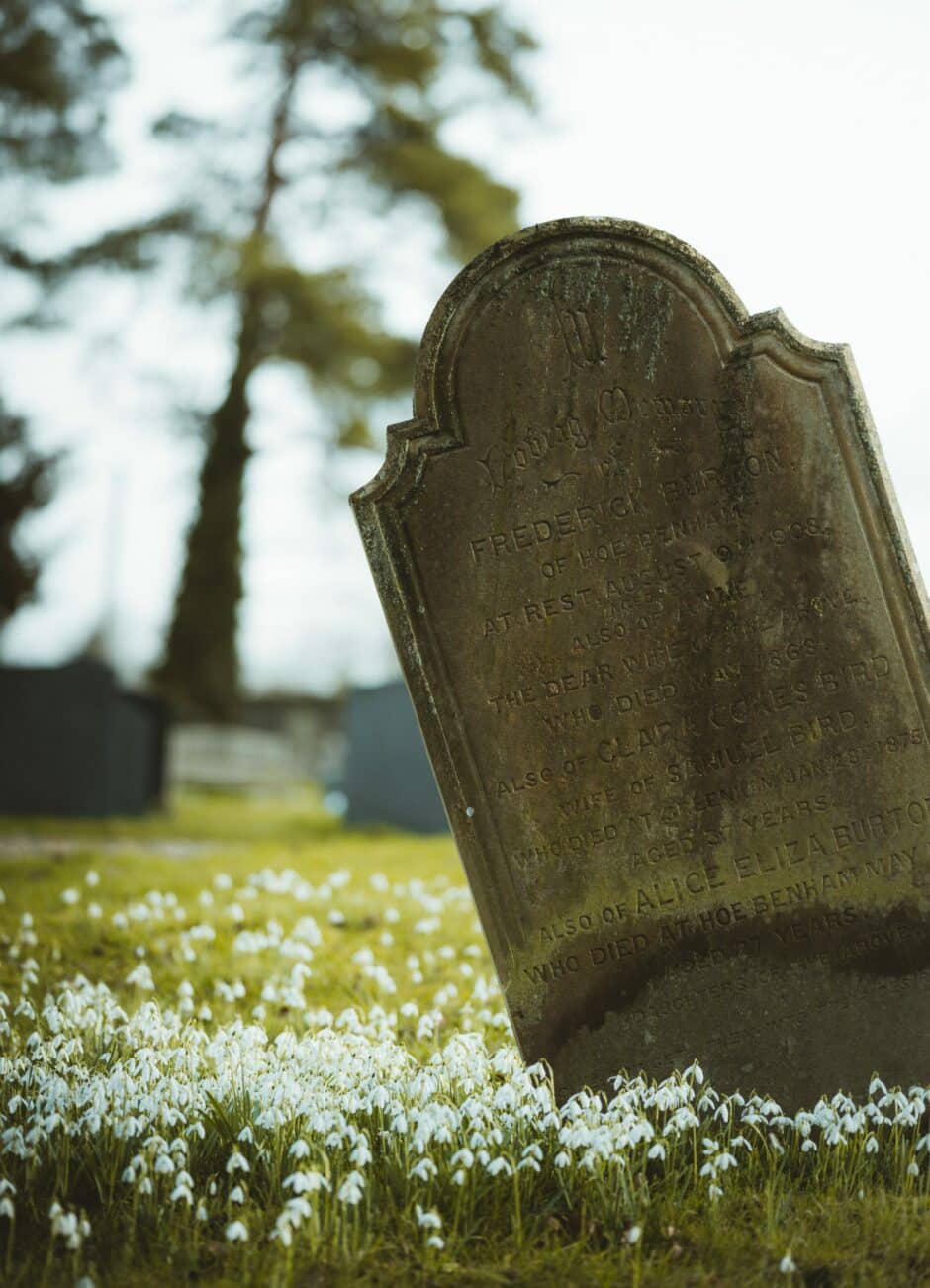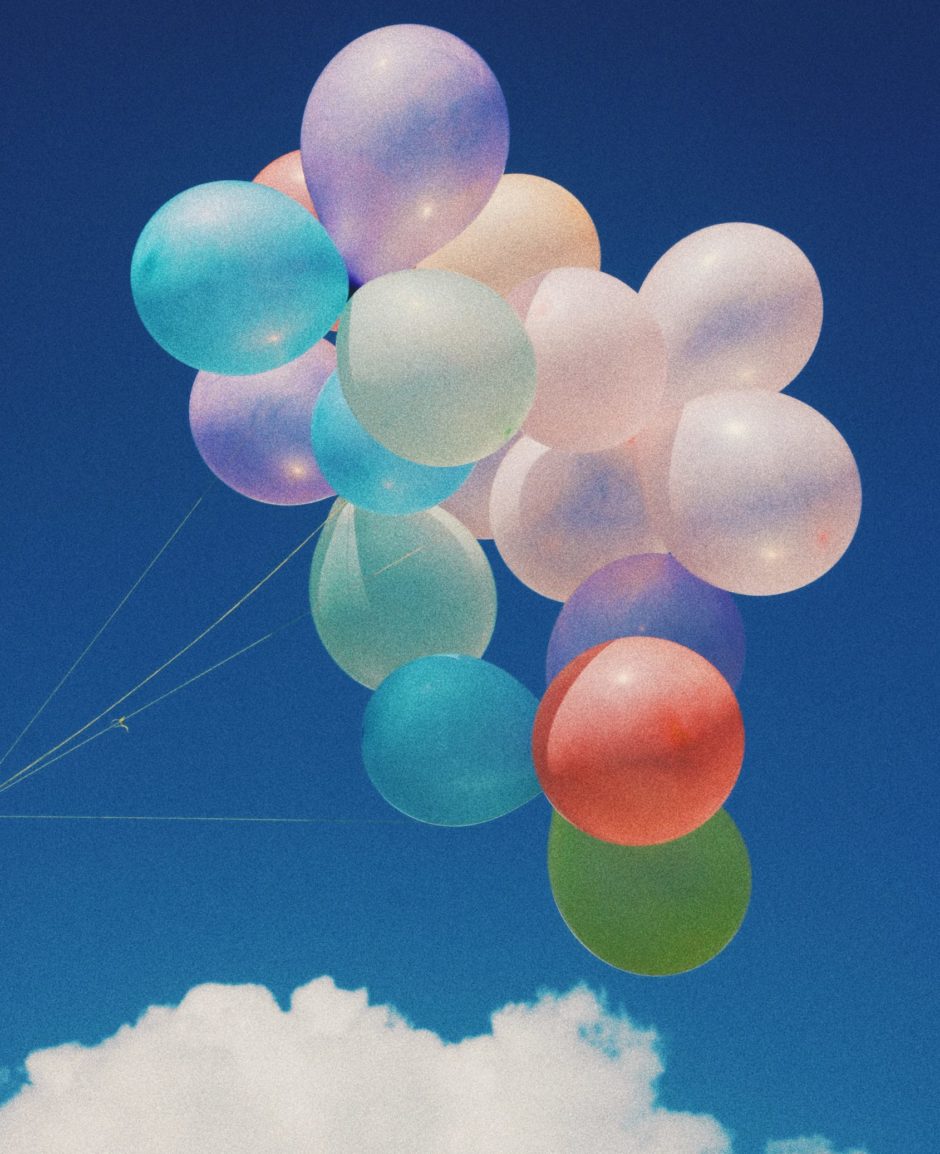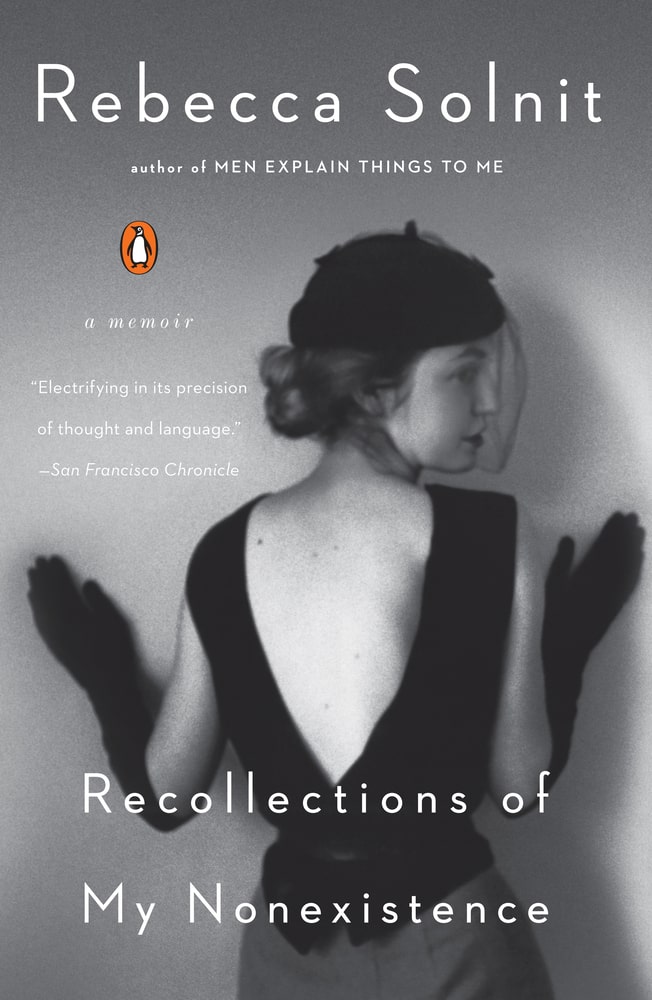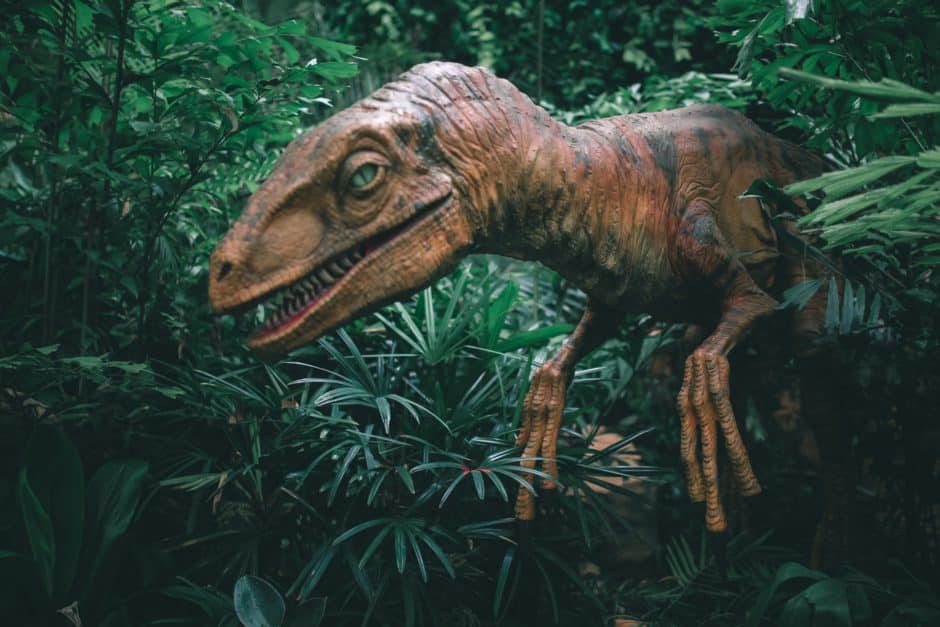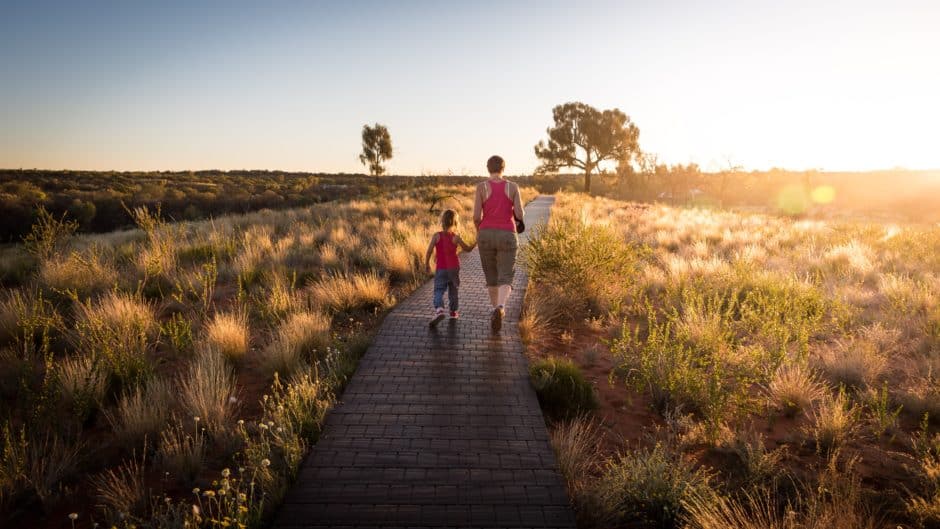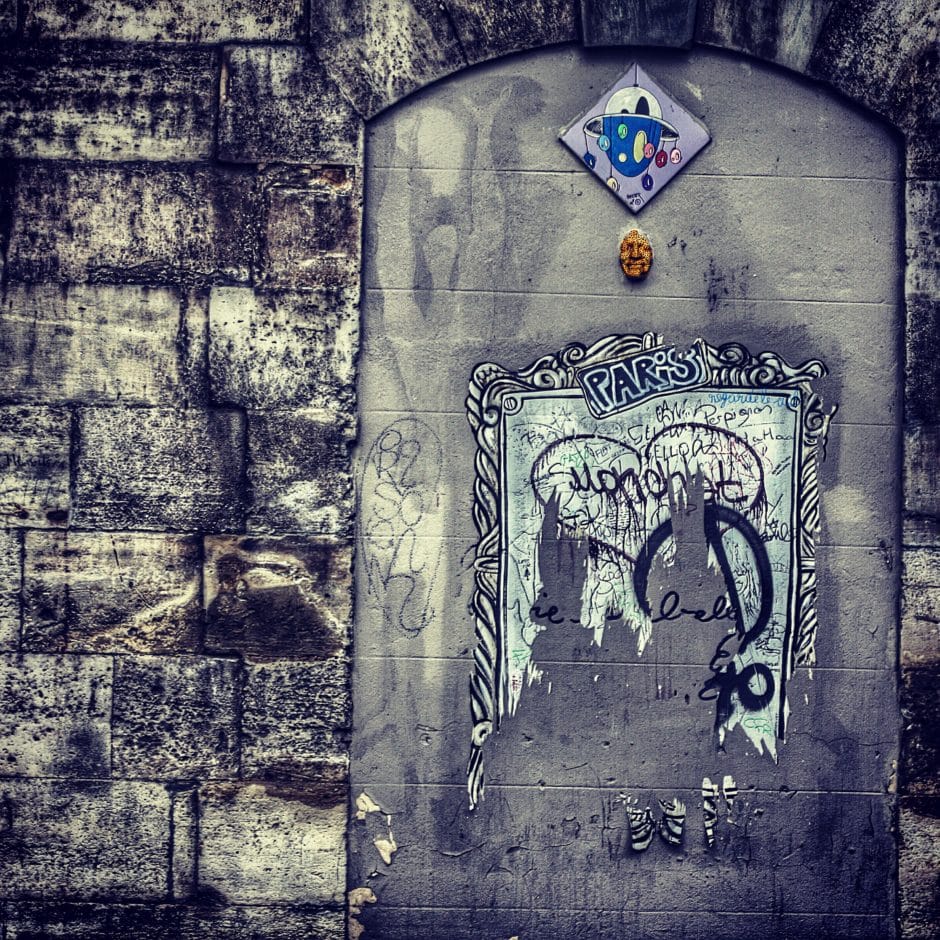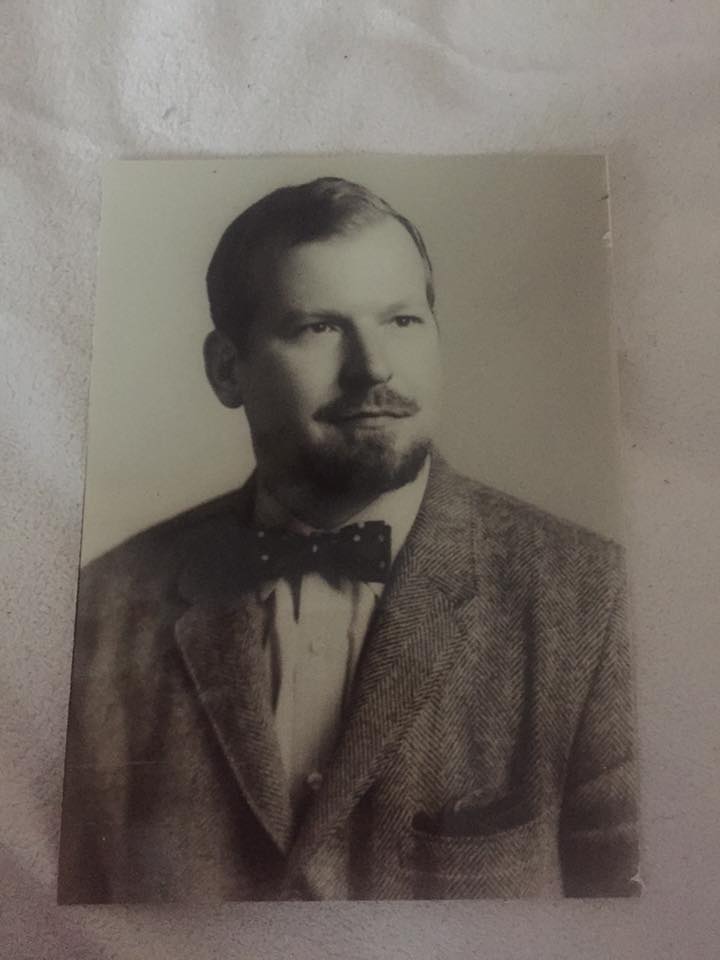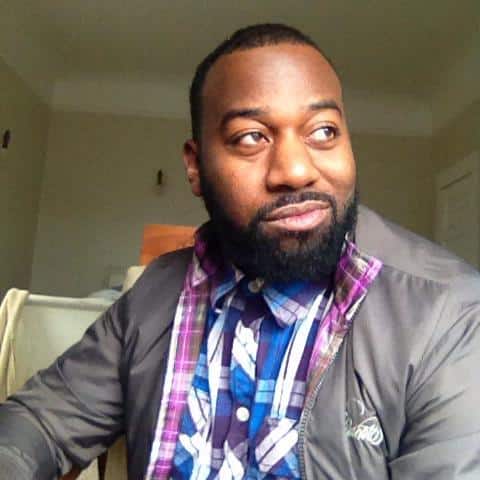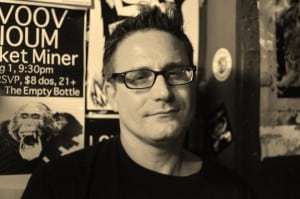By Shirley Dees
We’re going to visit James’ dad again. Before we leave I manage to squeeze a few moments alone in the bathroom of the duplex James and I rent and hang my head over the cheap, cushioned toilet seat, the kind that keeps your ass from hurting while you’re doing your business, and try not to puke while James stands outside the door. The timing of this year’s trip is a real bitch. He’s been dead for ten years, and every Father’s Day, James and I drive out to the cemetery to stand next to his headstone with James’ Poppa and talk about nothing. I never met him, but since I started dating James six years ago, I tag along.
“Leah, you about ready?” James is in a hurry. That’s what all of this is, really. A dreadful hurry.
“Can you give me a skinny minute?” I am surprised to find I can open my mouth without vomiting. Things are looking up.
“A small one. I hate to make Poppa wait.”
I stand up and move over to the sink. I study my face for obvious hints of morning sickness and add a touch of makeup. I don’t want his grandfather to be put out, either, so I try to hurry. “Is your Poppa feeling good enough to drive today?”
“Larry is taking him,” James says. His voice comes through the bathroom door like it’s worn down by hammers. I give myself one last scan, one last breath to steady this awkward and hurried day, and open the door.
“Okay, let’s go.” I walk by quickly without giving James the chance to get a real look at me. I am running out of time to tell him about the baby. I love him, which only makes all of this more complicated. He pulls the car keys off the hook hanging by the backdoor as I throw my purse over my shoulder. I feel him behind me, staring at the door, doing his yearly hesitation.
“James,” I begin, “we don’t have to go if you don’t want to.” He grabs the door handle to pull it open.
“It’s Father’s Day, Leah. You know I have to go.” Before I can ask again, he’s outside, feet crunching the gravel as he walks to his Ford Ranger. “Come on,” he says.
Every year, I try to cruise through this day with a level of indifference to make it all sort of just disappear, but every time I see the scars on the back of James’ head, that indifference melts into protective anger. I want him to know he is the one in control now. But I’ve learned not to push the issue. I offer to stay home in his seconds of hesitation by the backdoor, just to remind him the option is always on the table, but he always declines, stating it’s his duty to go. After all this time, I don’t really expect anything different anymore.
I climb into the steamy, black truck we share to get to and from work, each of us alternating with co-workers and carpooling when we can. We never drive it more than fifteen miles in a day so this is the truck’s longest journey every year at 60 miles, and I wonder how much longer it will last. James always says we’ll drive it until the wheels fall off, but I don’t think we can make it until then. This truck is twenty years old and suddenly too small. I crank the window and let the air hit my face, praying to God I don’t have to throw up on the way there.
Pretty soon we’re pulling out of town and the annual tour of my boyfriend’s childhood horrors begins. When he first told me about the abuse, it rolled off him the same way it does now. Ritualized. The Dairy Queen they met at for his dad’s public visits. The house where his dad used to live with Larry, an old friend and now Poppa’s neighbor, and the place James went when his dad was finally allowed overnight custody. This house was the one with the stairs whose pointy edges lead down to a wooden floor. The stairs and floor that birthed the scars on the back of my boyfriend’s head. He points them all out, every time. I’ve come to see them as his demons, evilness that must be excised regularly to keep them away, the reason for all this hurried dreadfulness. There must be a better way to heal, for everyone.
The heat-scorched Texas earth zips by as we cruise down the highway at the fastest speed the Ranger allows: sixty-three miles per hour, which means it will takes us an hour to make the trip. This is easy math that I keep in my mind to help make this day seem simpler, but one look out my window at the speeding ground and my head spins.
“We’ll stop in McKinney and get a bite to eat, that okay?” he asks like this isn’t what we always do. Normally, the stop in McKinney is the highlight of the day. They have this burger joint where the burgers are so juicy, they soak through the paper that lines those red, plastic baskets. The French fries are cooked in oil and bubbled until they’re perfectly golden and crispy, the ketchup salty and tangy on the lips. Food so good it makes you want to slap your granny. But today, just the thought of those greasy burgers makes me want to dry-heave, so I push it away and curl my legs underneath my hind-end.
James glances at me from the side. “What’s up?”
“I don’t know, maybe we can try some place else this time.” I look straight ahead, keeping my sour face out of view. A car screams by us on the left, a red convertible of some type. I’ve never bothered much with learning car brands and models, but sometimes I’ll take a guess at what it is to impress James. He whistles as the car switches back into the right lane, ahead of us.
“Damn, must be nice,” he sighs. I give a little silent shout of praise to the owner of the sport car for pulling James’s attention off my lack of an appetite. I know we’ll probably stop there and eat anyway, because there is nothing else in McKinney. Maybe I can get away with scarfing a small quarter-pounder and puking in the restaurant’s commode before we get back on the road.
“Your Poppa still going out to the cemetery every day?” I ask.
“He doesn’t like driving much anymore so he only gets out there when Larry can take him.”
“I didn’t realize he wasn’t driving anymore,” I say, pausing a moment to let a passing thought linger. “What’s he going to do with that truck of his?”
“The man’s got to get to the grocery store and what not. He’s just not driving anywhere long distance.”
“I wouldn’t call fifteen miles to the cemetery long distance.” Immediately I recoil, guilt pinching at my insides.
“Yeah, but to get there he’s got to get on the highway.”
“Oh, I didn’t think about that.” I realize I’m coming off like I’ve been waiting for Poppa to slide his big toe inside the old folks’ home to transfer the title to his vehicle into James’ name.
“You want to take his truck?”
“Well, no I just . . . I don’t know.”
“That’s Poppa’s vehicle, Leah.” James’ voice takes on that condescending tone that sends tethers of defensive coils up the back of my neck.
“I know.”
“Man ain’t quit driving more than a month and you’re already thinking him some kind of invalid.”
“No, James.”
“Claiming his property.” James shakes his head and disappointment spreads over him along with the crinkles that set into the corners of his eyes when his temper has run out of fuse.
“That’s not it at all.” I keep my voice calm in hopes to steer him back towards sanity.
“We have a truck, Leah.”
“I know.”
“We ain’t ever had a problem with it. But my Poppa gets old and you start seeing money bags.”
“I wasn’t thinking about taking your Poppa’s truck, James.” His knuckles tighten on the steering wheel and I know I need to get control. “You know me better than that. I just don’t want him giving it away without talking to you about it first. You know how some people will take advantage of Poppa.”
“Hmm,” he keeps his eyes on the road but I both hear and see his suspicion. He is trying to keep his temper in check and keep his demons tightly roped inside. “Okay, just sounded like you had other intentions.”
“Please don’t put words in my mouth.” Another car zooms past and there goes his focus, just like that. A little flame of frustration still flickers away in my mind but I swallow again to try and put it out. My temper is on a shortened leash today, too. I can’t handle the accusing tone he gives me all the time when stuff like this comes up. We fight about the most stupid things like any normal couple, but mostly we argue about the future. He believes he’s doomed to repeat the mistakes of his father. James ain’t ever hurt me. Not physically, anyway. We’ve had our bickering, and he’s gotten in my face a time or two, but it never goes any farther than that. It’s like a spark, something goes wrong and he snaps into anger, a few harsh words come flying out of his mouth without thinking and then his face fills with remorse. It’s what I point out to him all the time the minute I know he recognizes it.
“You see,” I say, never backing away. “That’s why you ain’t like your daddy, James. You have awareness.”
I think that’s why I haven’t left yet, because I can see past those crinkles of anger and deeper than the illness that’s cursed his genetic line. Awareness. It’s been like this since we first got together and I’ve just put up with it because I love him deeply. I’ve never asked for a ring, but I’m pregnant now and it ain’t just our future anymore.
The miles speed by in silence. Pretty soon, we’re pulling into McKinney and I see the burger joint up the road. My stomach is feeling okay, so this may not be so bad after all. In fact, as we walk in, I’m ravenous. I scarf my burger and inhale the fries. I want all the Coke that’s in the soda machine and then I order a chocolate milkshake to go. James wants to share, and I oblige, even though I don’t see why he can’t just order his own damn ice cream.
“You know, Dad used to buy us ice cream from here,” James says as we walk back to the truck.
I perk up. “Oh really?” James has never mentioned this before.
“It tastes the same now as it did then.” He reaches over and grabs the cup from my hands and pulls a mouthful of shake from the straw. “Then I got sick one time and threw up in his car and he beat me so bad I couldn’t sit down for a week.” He semi-slams the paper cup in the holder on the dash and angrily turns the key. Gravel shoots off from the Ranger’s tires as we pull out of the parking lot and are back on the highway again, heading towards complications. Maybe it’s my shortened temper, but for the first time in the six years of this annual trip, I get upset with James for this outburst and let out an irritated sigh.
“Oh, Jesus Christ, James.”
“What’s wrong with you?” he says, turning his entire head towards me.
“Nothing,” I say, crossing my arms.
“Don’t pull that.”
“I’m tired of this damn stuff every year,” I spit out. “We drive these terrible sixty miles and the entire time you talk about all the bullshit he pulled when you were growing up, and then by the time we get there, you’re all angry and pissy with me and Poppa and the whole thing just sucks.”
“Well, Christ, what do you want me to do about it? Not go? Poppa’d kill me if I didn’t come out here every year,” he keeps his eyes on the road and I can tell he’s trying to control his temper again.
“No, all I’m saying is, well, don’t you think you can at least try and think of something good? I know it couldn’t have been rainbows and peaches with the man, but there had to be something. Maybe if you think of something good instead of all the awful, you won’t be in such a foul mood by the time we get out to the cemetery, and then Poppa won’t get on you about being a grump, and I don’t know, we can finally spend Father’s Day in some peace.”
James doesn’t say anything for a hot minute. He passes a car on the left and then switches back over to the right lane.
“You’re not being fair,” he says.
“Ain’t I?”
“There ain’t nothing good I can talk about.”
“Bullshit.” I try to dig for a specific moment, but nothing is coming to mind under pressure, and I start to panic.
“I said there’s nothing,” his grip tightens on the wheel again. I cross my arms and start to run through holidays and moments that could spark a memory, any memory that was positive, but it was pointless. James hates Christmas for reasons I know stem from his dad. His family was poorer than mine so trips anywhere as a kid were a pipe dream, but I’m desperate. I have to keep the stack from wobbling too far off course into a dangerous area.
“James,” I start to say, my voice soft and flat. “Come on, tell me something good.” He says nothing, his eyes with that tempered glaze. I ignore the feeling in the pit of my stomach. “Come on.”
“No!” His wrist hits the steering wheel and the truck swerves, the car next to us honks, but I don’t think James hears him, or cares. “There isn’t any good stuff. There never was!” His voice bounces off the windshield and the passenger window. I pushed too far, but it was too late to try and reverse course. I might as well keep steering this messed-up ride on my own course.
“I don’t believe that,” I say.
James groans. “You’re being damn difficult.”
“You can’t blame me for wanting my boyfriend to remember decent things about his father.”
“I just don’t see why it’s so important to you.”
“I think it’s important for you, James.”
“I don’t.”
“So we disagree, but I still want you to try.”
“I have tried.” James says this with a touch less anger, and it saddens me because I know it’s true. But I push on.
“Try harder,” I say.
“You don’t understand.” He shakes his head.
“James, I can’t believe your father didn’t love you.”
He doesn’t say anything for a while, but I keep my eyes on him, studying the muscles in his face. I take his silence as him going to those depths, to find something he’d kept shoved at the bottom of his soul, buried in the darkness.
“He didn’t love me,” he says.
“How are you so sure?”
“Because. . . I didn’t love him.”
“James. . . .”
“You wanted the truth, Leah, so there it is. Though, I don’t know why you haven’t figured out any of this before. My dad broke something in me long ago. Love like that, it ain’t possible, alright? Not for me. There ain’t no good left.”
“But how can you say that when I’m sitting here right next to you? I mean, you love me, don’t’ you?”
“That’s different.”
“No it ain’t. Love is love, James.”
“Like shit it is.”
“You know what I mean.”
“Yeah, well…” he breaks off into a silence.
“What’re you trying to say?” My stomach rumbles. A wave of nausea hits me and the road swerves, but James’ hands are tight on the wheel. I grab the dashboard to keep the earth from flipping upside down. “You can’t love anyone else?”
No answer. His silence is like a scythe. Heat pulses across my body, a salty sickness creeping its way into my mouth. The Ranger jumps a slab of buckled asphalt and suddenly I have to vomit. No time to ask him to pull over, I slam my hand on the window crank and lower the glass just enough to poke my head through and unleash the juicy burger and fries on the side of the highway at 58 miles per hour.
“Leah!”
I pull my head back inside and roll the window up. I pop open the glove box and pull out one of the hundreds of restaurant napkins we keep stashed in there. “Sorry, must have gotten car sick.”
“Car sick? You ain’t ever gotten car sick before.”
I wipe my mouth and lean my head back against the seat, closing my eyes. My stomach feels lighter, calmer, but my heart is beating too hard, sadness spilling from its chambers and spreading through the inside of the Ranger. “Well, I guess there’s a first time for everything.”
I consider a couple of options. I could cry and tell him I’m pregnant and everything else that is on my mind. Or I could ask him to pull over and let me out, find a way back home and pack up my stuff and leave. Problem is, neither of those options really solve the problem. There’s still a life growing inside me.
Fatigue falls on me like rain so I close my eyes, the sun on my face and shoulders failing to comfort me the way a blanket would a tired baby. I want to sleep and figure I can because James clearly isn’t in the mood to talk anymore, and to be honest, neither am I.
***
I didn’t notice when the truck stopped. I didn’t even realize I had fallen into such a deep sleep. James shakes me and I see his face as I open my eyes, close to mine, holding a cup of Sprite to my lips.
“You feeling alright?” He actually looks concerned, all of the glaze and crinkles gone from his eyes. Fatigue melts into affection as I stare into those honey irises and feel their devotion. I don’t know why he thinks he isn’t capable of love.
“I’m okay. We here already?”
“Yeah, but Poppa ain’t yet. Come on, take a sip of the soda.”
I grab the cup from him and place the straw between my teeth. I sit up and look out. The cemetery is empty, the grass a light brown, thin and withering into dust. There isn’t a single cloud in the sky and I feel the heat radiating off the marble and concrete headstones from inside the Ranger. I pull a sip of soda from the straw.
“You want to wait here for Poppa?” I ask.
“No, let’s just go on over. He should be here in a minute.” James pops open his door and steps out, so I follow. Caliche rocks poke the thin bottoms of my flip flops and I regret the decision to wear them. The sticker burrs in this dead grass are going to tear my feet to hell. We start walking to the gravesite, one of my hands firmly on the soda as I suck in more of the cold liquid. A pathetic excuse for a breeze tries to blow over the cemetery but it really only feels like God just opened a giant oven door. My brain is beating on the sides of my skull and I try to swallow the rest of the Sprite to get it to quit. I wonder if it’s disrespectful to puke on hallowed ground.
“I didn’t bring anything,” I say, realizing we don’t even have a single flower to place on the headstone. James just shrugs. I guess it doesn’t bother him that we’re the first ones to arrive and are walking up to his dad’s grave empty handed. Doesn’t seem right. Poppa’s usually the one who gets here first and typically has something to lay on the grave. Typically, we all stand around, James shuffling his feet in the dirt while Poppa talks, saying nothing more than “yeah,” and “uh huh,” which usually pisses Poppa off. Then we all get quiet for a while. Poppa takes out a folded piece of paper from his pocket and stares at it for a few minutes, then folds it back up and stuffs it into his wallet, never reading it aloud, never leaving it by the headstone. James has never asked what that was all about, and because he hasn’t, neither have I.
We pass a few more rows of grave markers before we arrive at his dad’s. It is so hot I consider hiding out in one of the freshly opened plots, just so I can run my hands through the cold soil that’s been shielded from the heat by layers of earth. We stop a few feet from the stone, and both of us stare at the ground. I start picturing the memories James brought up in the truck and a feeling of anger ripples across my chest. I know it’s not the time or place but I can’t help it. Love spurns a protective desire, but what could I do? The son of a bitch was already in the dirt.
“Well. . .” the rest of my words die away. They all seem so pointless, even more so now. I want all of this to be over and I feel the hurried dreadfulness creep between the graves and lie at our feet. James puts his hands in his pockets and lets out a breath, but he doesn’t say anything, either.
Tires moving through the caliche make us turn our heads. “That’s Larry and Poppa,” James says as the truck parks a few rows back, but only Larry gets out of the vehicle. He’s wearing starched jeans and snakeskin boots with a collared shirt. He is dressed for another occasion separate from this disaster of a day.
“Poppa driving himself?” James asks.
Larry shook his head, his white hair bouncing. “Sorry, James. Your Grandfather wasn’t feeling well and couldn’t make it out, but he does want you to come by before you head back home.”
“Well, he could have called.”
“He figured if he called you this morning and said he wasn’t coming you wouldn’t show,” Larry says.
“Well, that’s not a lie.” James wiped the sweat from his brow.
“But he wanted you to have this and he asked if I could bring it to you.” Larry reaches in his pocket and pulls out the familiar, aging folded piece of paper and hands it to James.
“You serious?”
“Well, your grandfather sure was.”
“What am I supposed to do with it?”
“Keep it, I think.”
“Poppa don’t want it back?” I ask.
Larry looks back and forth between us, then opens only the corners of his mouth to answer like he’s trying to protect us from something. “I don’t think your Poppa’s going to come back out here much anymore.”
This isn’t a hard truth. Poppa is getting mighty old, and Larry is only in his late fifties and has a business to run and new grandkids of his own to visit on Sundays. He doesn’t have a whole lot of time to bring Poppa out here, though I’m sure he would keep doing it if Poppa didn’t step in and say something. I suspect it was all Poppa’s decision, seeing the stuff Larry had piling up on his plate. He didn’t want him missing out and knew he would keep coming unless he told him to get lost, so that’s what he must have done this morning. Very quickly I saw the Father’s Days in the years ahead and tried to imagine what it looked like at this graveside, and who was all standing here if one of them wasn’t Poppa.
“If you don’t mind, I think I’ll leave you two to your affairs. I’ve got a barbecue to get to. Just, go see your grandfather. I think he’d like to see you, James,” Larry says.
“Sure, thanks.” James sticks out his hand and shakes Larry’s before he turns and walks away.
“Have a happy Father’s Day!” I shout after him. He waves a backwards hand and gets in his vehicle and drives off. I turn back to James and eye the paper in his hand. “Well?”
“Well, what?”
“The paper! Aren’t you wondering what it says?”
“It can’t be the same one, can it?”
“I’d recognize that folded paper anywhere. Your Poppa always brings it every year.”
James looks down at it, then at his dad’s grave, then shakes his head. “No, let’s just go.”
“James.” I try to let him know this decision is more ridiculous than this whole affair combined. “You stubborn asshole. Just read the thing.”
“Fine, but then we’re going straight home. We ain’t going to Poppa’s. I can’t stand this heat no more.” He unfolds the paper and takes a step closer to the grave and starts to read, rotating his back towards me.
I wait, reading his body language as I imagine his eyes running across the lines of writing and try to think what the paper has to say. Another boiling breeze moves across the air and a sickness stirs in my stomach again. That would be something, to throw up on this man’s grave. I look over at where we parked the Ranger and wonder if I’d even make it back, giving the cup in my hand a shake and almost weeping at its empty silence. After about another minute, James picks his head up and turns around, staring straight through me like hail cutting through trees. A hot redness creeps onto his cheeks, and I expect the glazed, crinkling look of his eyes to follow, but instead he allows the muscles in his face to fall flat. His shoulders droop and his lips curl south. His knees shake and bend, and then all at once, he falls to the ground.
“James!” I drop the cup and kneel down next to him, sticker burrs poking through the soft layers of the skin on my legs. I put my hands on his arms, his neck, and then his face, and pull it into mine, a river of tears streaming down and off his chin. The tremble of something buried deep in him rises to the surface. It is complicated. It is confusion. It is truth. He doesn’t say anything. He doesn’t have to. I pull him into my shoulder and let him cry, the paper in the dirt half folded, only a few lines visible on the bottoms of the page. I hold James in my arms, and everything unspoken pours out of him and into the ground below us. Suddenly, the heat doesn’t seem to be such a bother anymore and if he needs me to, I’ll sit here for the rest of my life with him.
The cicadas pick up and that stirs James enough to lift his head. “Okay,” he says.
“Okay,” I reply. He stands up and shakes the dirt from his legs and then helps me to my feet.
“Let’s go see Poppa,” he says.
“Okay.” I fold the paper and place it in my pocket. I’ll ask James what he wants to do with it later.
He grabs my hand and stares at the grave. I don’t pull him along.
“I wanted to love him,” he says.
“I know.” I give his hand a little squeeze, and then we move back to the Ranger, opposite of how we arrived, hand-in-hand, neither of us wanting to let go.
We keep our hands together for the fifteen-mile drive to Poppa’s, and I turn the radio on, music filling the cab for the first time on this trip. As we pull into Poppa’s driveway, James turns off the engine and turns to me, still holding my hand.
“I know about the baby,” he says.
My heart leaps into my throat and tightens every muscle around my voice box. Something like a roar fills my ears. “James—”
He shakes his head. “It’s okay.” His voice is like cotton. The burn of tears builds in the corner of my eyes and in my heart.
“Are you sure?”
“Yes,” and a smile so big lands on him with such assurance, I let everything inside of me go and weep like a child.
Shirley Dees received an MFA from Spalding University’s School of Creative and Professional writing in Spring 2021. When not writing, Shirley is busy parenting, seeking sunshine rays, and sampling local craft brews. She lives in Southeast Alabama with her husband, daughter, and geriatric pet turtle.
~~~~~~~~~~~~~~~~~~~~~~~~~~~
You know it’s an amazing year to be a reader when Emily Rapp Black has another book coming. Frida Kahlo and My Left Leg is remarkable. In this book, Emily gives us a look into how Frida Kahlo influenced her own understanding of what it means to be creative and to be disabled. Like much of her writing, this book also gives us a look into moving on (or passed or through) when it feels like everything is gone.
Pick up a copy at Bookshop.org or Amazon and let us know what you think!
~~~~~~~~~~~~~~~~~~~~~~~~~~~
Are you ready to take your writing to the next level?
Two of our favorite writing resources are launching new opportunities for working on your craft. Circe Consulting was formed when Emily Rapp Black and Gina Frangello decided to collaborate on a writing space. Corporeal Writing is under the direction of Lidia Yuknavitch. Both believe in the importance of listening to the stories your body tells. If you sign up for a course, tell them The ManifestStation sent you!
~~~~~~~~~~~~~~~~~~~~~~~~~~~
Anti-racist resources, because silence is not an option
~~~~~~~~~~~~~~~~~~~~~~~~~~~

